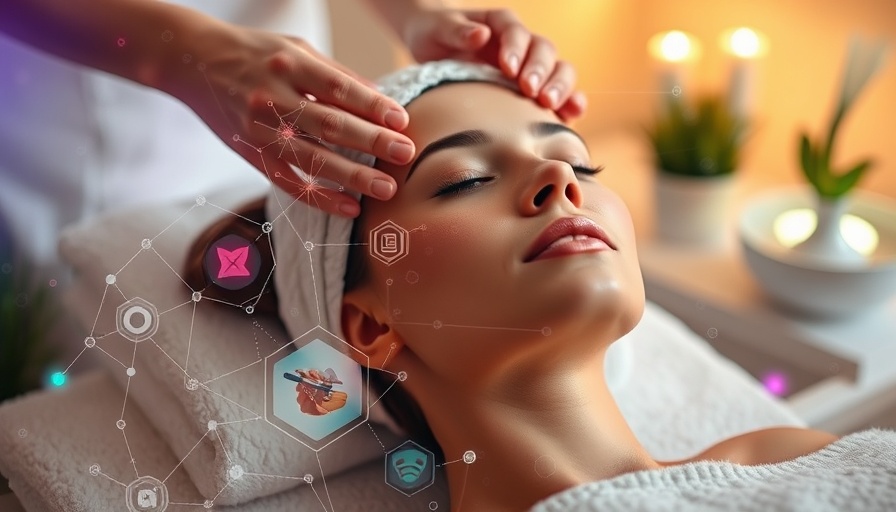
Rethinking AI Marketing for Spas and Beauty Brands
In today’s rapidly evolving digital landscape, artificial intelligence (AI) is often hailed as the magic solution for marketing challenges across various industries, including spas and beauty brands. However, a closer look reveals a more nuanced truth: AI is just a tool, not a miracle worker. As the beauty market becomes more saturated, cultivating a unique voice and brand presence has never been more critical.
Understanding AI's Limitations
While AI can generate content like product descriptions and blog topics, it lacks true marketing insight. It replicates existing content, which can lead to uninspired and generic messages. According to experts, successful marketing relies heavily on original ideas and personal connections with consumers, something AI cannot create. It’s crucial for beauty brands to embrace AI not as a substitute for creativity, but as a tool to enhance human ingenuity.
Smart Marketing: Using AI Wisely
The truth is, clever marketers do incorporate AI into their workflows, but not without understanding its limitations. AI can accelerate smaller tasks, trimming hours off labor-intensive processes when utilized properly. For instance, a savvy marketer can use AI to streamline content ideation, but must then apply personal touches and strategic insights to ensure the output aligns with their brand’s voice.
Importance of Quality Content in the Age of AI
As Google intensifies its efforts to demote low-quality, AI-generated content, the message is clear: quality still reigns supreme. Major updates to Google’s algorithm emphasize E-E-A-T (Experience, Expertise, Authoritativeness, and Trustworthiness). Brands aiming to elevate their online presence need to focus on delivering valuable, engaging content tailored to their audience. Simply churning out AI-created posts can not only dampen brand credibility but can also significantly affect search rankings.
The Risks of Neglecting Brand Voice
In spa marketing, where trust and personalization are paramount, relying solely on AI can alienate potential clients. A brand that loses its distinctive voice risks becoming indistinguishable from its competitors. Effective communication is rooted in understanding customer psychology; AI cannot replicate this nuanced approach. A spa that sends generic marketing messages may find itself disregarded by consumers craving a personalized experience.
The Role of Human Insight
Ultimately, the best outcomes for beauty brands stem from the fusion of AI capabilities and human insight. While AI can handle the heavy lifting of data processing and content generation, it requires a knowledgeable marketer to steer it effectively. Brands must ensure that real, relatable voices are behind all communications to build loyalty and trust within their local communities.
Future Trends in Spa Marketing
As the beauty industry evolves, embracing hybrid marketing techniques—combining AI efficiency with genuine human storytelling—will distinguish leading brands from the pack. Those willing to adapt and innovate while remaining true to their unique identities will thrive. The future of beauty marketing will ultimately celebrate the blend of technology and humanity, paving the way for a more engaged and trusting consumer base.
The conversation around AI's role in marketing continues to grow; understanding its limitations and applications provides valuable insights for business owners in the beauty sector. Continuously refining strategies, implementing feedback, and understanding customer needs will be essential steps as we move forward.
 Add Row
Add Row  Add
Add 



Write A Comment